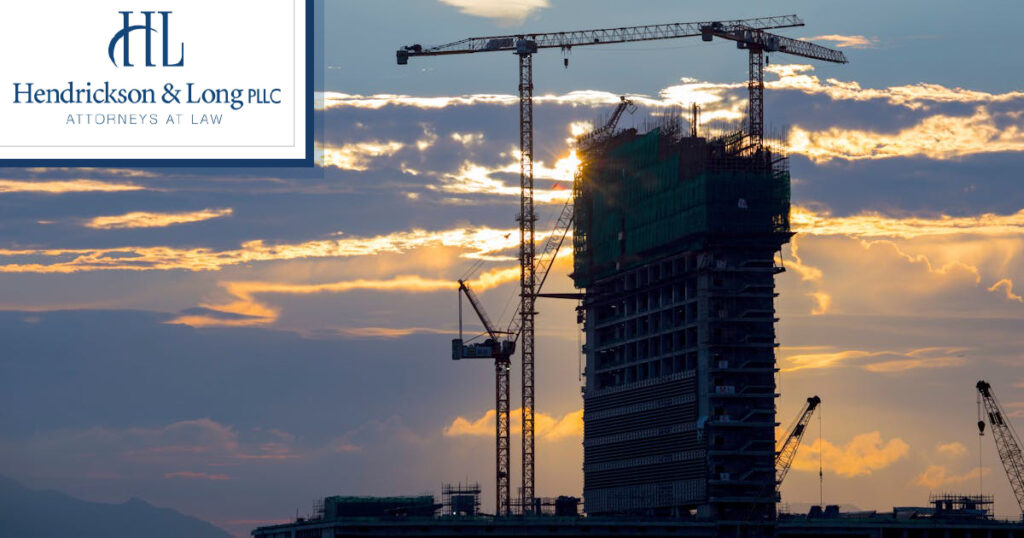When To Hire a Third-Party Inspector for a Construction Defect Claim
As a builder, you put in your time to do a job right, yet you still may find yourself facing allegations that you performed a shoddy job from a homeowner or commercial property owner.
You’ve started considering your options, including when to hire a third-party inspector for a construction defect claim, but are unsure when it’s best to do so and why to do so. Let us help you make sense of its importance.
Why Having a Third-Party Inspection Performed Is Important as a Builder
While you’re a contractor who is confident that the work you performed is top-notch, there are a few reasons why you might want to bring an inspector into the fold if a construction dispute arises with a customer, including:
To Reveal the “Bigger Picture” Regarding What May Be Causing the Defect
So often, what appears like an isolated situation might actually be a much larger issue.
For example, a customer may think that you used inferior processes or materials in drywalling their home, and that explains why their walls are cracking. But in actuality, they have a foundational issue where their home is sinking, resulting in this phenomenon instead.
As a contractor, you may have been hired to handle one task, which might not necessarily warranted you finding out about another concern. So, third-party inspections like these effectively uncover other related pre-existing concerns that may not have been disclosed to you by your customer but are causing the apparent “defect.”
Where There Are Flaws With the Approaches or Materials You Use
Many builders learn from serving as apprentices to other contractors and find themselves easily convinced to use certain materials for their construction products from a colleague’s or hardware store worker’s recommendation or advertisement. Those building approaches and product recommendations may not always be the best, which can lead to customers uncovering potential defects.
However unfortunate it may sound, having a third-party inspector come in can be effective in shedding light on whether your building approaches and the materials you use for projects are indeed the best ones for the job.
You often hear people say that they “won’t make the same mistake twice.” They say this because they’ve had the misfortune of making and having to fix a costly error like this after it was called to their attention, and they never want to repeat such an experience again.
So, the message here is that if the inspection does lead to an unsettling discovery that your customer is right, a situation like this can be viewed as a learning moment to avoid problems in the future.
Strengthening Your Position
If you’re asserting that you performed high-quality work and your customer feels differently, a qualified, impartial inspector may be able to help “settle the score,” as the saying goes. In this case, the inspection may reveal that you performed work to code despite your customer’s allegations that you did not.
Additionally, it may allow for confirmation that you used the products you claimed to have despite being accused of having used inferior ones.
And, if your customer has said that it’s clear that you didn’t follow best practices when performing the work, an inspector can assess whether that’s the case.
As you can likely tell, while the inspection can certainly reveal concerning issues that substantiate a customer’s allegations, it may also uncover where you’re in the right with the way you performed your work, thus quashing any allegations of impropriety.
Showing Your Customers That You Are Honest
So many contractors get a “bad rap” and get grouped with others who cut corners by using inferior materials or performing poor-quality work just to turn a larger profit. Customers’ perspectives can easily be tainted, assuming that you’ve made a construction defect when that’s not the case simply because they’ve been burned in the past.
If you’re one of those contractors who operate differently, bringing in a third-party inspector can show that you have nothing to hide. This honesty or transparency can be very refreshing to customers, quelling their concerns if they have the impression that you’ve pulled “a fast one” on them.
Why It’s Important Not To Let a Customer’s Construction Defect Allegations Go Unaddressed
In this increasingly technological era, word travels fast if you offer poor customer service, use bait-and-switch tactics to substitute inferior building materials for the ones your client requested, or perform construction work that is poor quality, doesn’t meet codes, or is otherwise unprofessionally done.
So, your reputation is on the line for sure.
However important your reputation is, that’s not all you have to worry about. The amount of time and cost you may have to invest in litigating a construction defect case like this can be significant.
It can easily distract you from money-making activities like working on other projects, and your damage control measures can easily drain your bank account. This is why you can benefit from the support Hendrickson & Long, PLLC can provide you.
Our attorneys specialize in construction and commercial litigation and are experienced in handling cases where customers allege defects exist. We know how to reinforce the terms of your contract, including requiring those clients to pursue mediation or arbitration behind closed doors if that contractual agreement calls for it.
And, if litigation becomes necessary, we’re mindful of your time and budget and try to reach a resolution as quickly and cost-effectively as possible.
Let’s talk about the construction defect allegations you’re facing. Your initial consultation with one of our attorneys is free.


